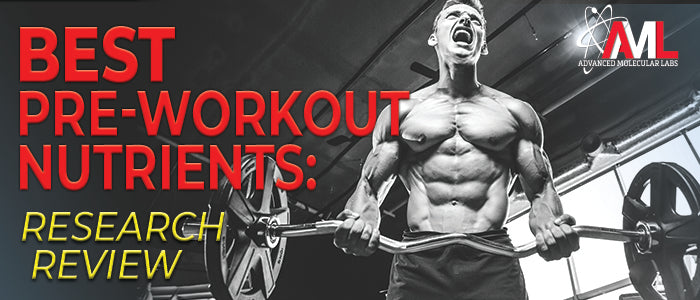


Huperzine A Testosterone: Bodybuilding Myths & Truths
By Robert Schinetsky
Huperzine A is a common ingredient in many pre workout supplements. In recent years, there has been a growing trend of adding nootropics to pre workouts, a trend that emerged as DMAA and DMHA were phased out.
However, the question remains: does adding Huperzine A to pre workout supplements actually enhance mental or physical performance? Furthermore, are there any huperzine a testosterone benefits that could be leveraged for fitness enthusiasts?
The primary purpose of a pre workout supplement is to supply the body and mind with the nutrients needed to lift more weight for more reps, delay the onset of fatigue, and improve performance. Despite this, some recent research suggests that Huperzine A may not be the best fit for pre workout supplements.
Before diving into the study, let's first discuss the reasons behind including Huperzine A in pre workouts.
Why is Huperzine A Included in Pre Workouts?
Huperzine A is an alkaloid naturally occurring in toothed clubmoss (huperzia serrata). It is primarily known for its ability to inhibit acetylcholinesterase, the enzyme that breaks down acetylcholine, often referred to as “the learning neurotransmitter.”
It is primarily known for its ability to inhibit acetylcholinesterase, the enzyme that breaks down acetylcholine, often referred to as “the learning neurotransmitter.”
Acetylcholine plays a crucial role in learning, the mind-muscle connection, and muscle contraction. This is why huperzine a benefits pre workout routines, as it could potentially enhance the mind-muscle connection.
Since acetylcholine is involved in muscle contractions, and prolonged endurance exercise can deplete choline and acetylcholine, supplementing with an ingredient that sustains acetylcholine levels in the body makes theoretical sense.
With this in mind, let's see what the new research has to say about huperzine supplements in pre workouts…
The Study
Published in August 2021 in the International Journal of Exercise Science, researchers investigated whether taking huperzine prior to exercise would improve mental or physical performance.
Fifteen exercise-trained individuals between the ages of 18-60 participated in the double-blind, crossover trial. This method allowed each individual to serve as their own control, performing the exercise trial both under placebo and Huperzine A conditions.
Participants needed to engage in moderate to vigorous intensity endurance exercise, such as brisk walking, running, or cycling, at least three days per week for at least 20 minutes per session, for six months prior to the study.[2]
Interestingly, resistance training was not part of the definition of “exercise-trained” for the study, which is notable since huperzine a bodybuilding benefits are often associated with resistance training. This raises questions about the relevance of the study's findings for bodybuilders who frequently use pre workout supplements.
What Dosage of Huperzine Was Studied?
Participants received 200mcg Huperzine A or placebo capsules 30–45 minutes before exercising. This huperzine a dosage bodybuilding enthusiasts might find relevant for its potential effects on mental focus.
Previous research indicated that orally ingested huperzine A appears in the blood within 15 minutes and reaches peak levels by 60 minutes.[3]
What Tasks Did the Participants Perform?
Participants performed a series of mental and physical tests, including:
- Endurance exercise task: walking on a treadmill with increasing speed/incline until reaching 70% of heart rate reserve (HRR).
- Upon reaching 70% HRR, subjects performed an additional 30 minutes of steady state exercise at this work rate.
- Estimated time to complete both tasks was between 35–45 minutes. Previous studies have shown that this duration of exercise is enough to impair cognitive function, suggesting that huperzine A supplementation could help.
- Working memory tests
- Verbal fluency and word fluency tests
- Information processing tasks
Here's a diagram from the study for further clarification[2]:
Note: cognitive function tests were performed during the last 10-minutes of exercise.[2]
After the endurance exercise portion, participants had their hand-grip strength and vertical jump height tested to assess muscular strength.
Next, they performed a standardized push-up test after the grip strength and jump tests.
Rounding things out, participants completed a dart throwing test (three rounds of three throws) to measure hand-eye coordination following the muscular endurance task. Participants completed a dart throwing test to measure hand-eye coordination, followed by a “Sharpened Romberg test” to assess balance performance.
The Results
After analyzing the data, researchers found that Huperzine A supplementation offered no significant differences in cognitive function between study trials.[2]
Interestingly, there was a trend suggesting that huperzine A supplementation may have made exercise more difficult![2]
Additionally, there was no decline in cognitive function observed from baseline to exercise.[2]
Researchers concluded that based on their data, it is not likely to provide such benefits. Athletes and exercisers should be advised to seek other approaches for maintaining or enhancing cognitive function during exercise.





